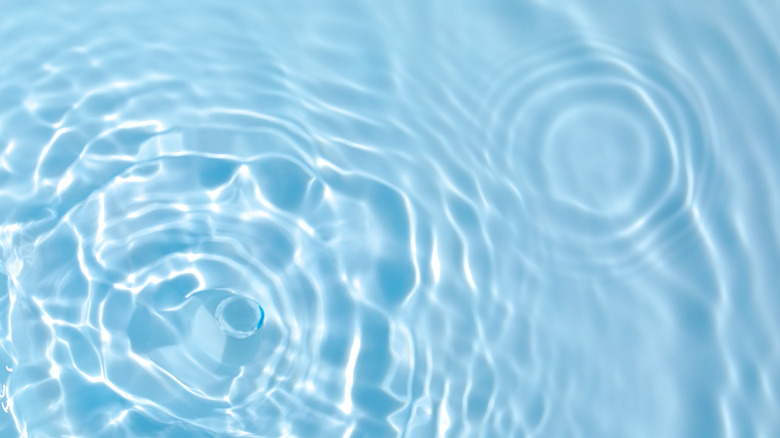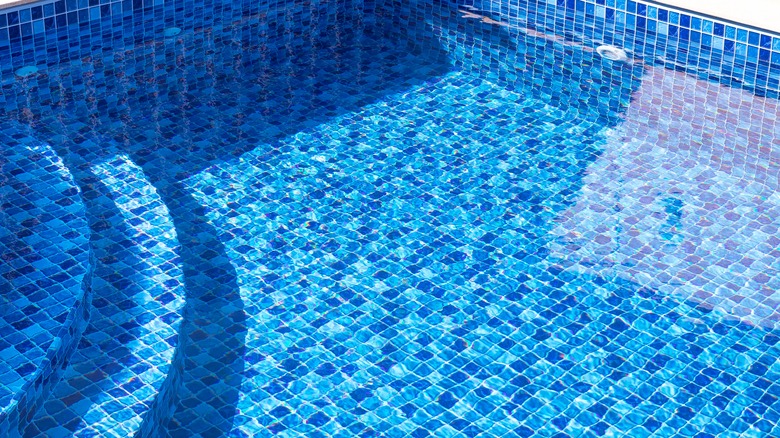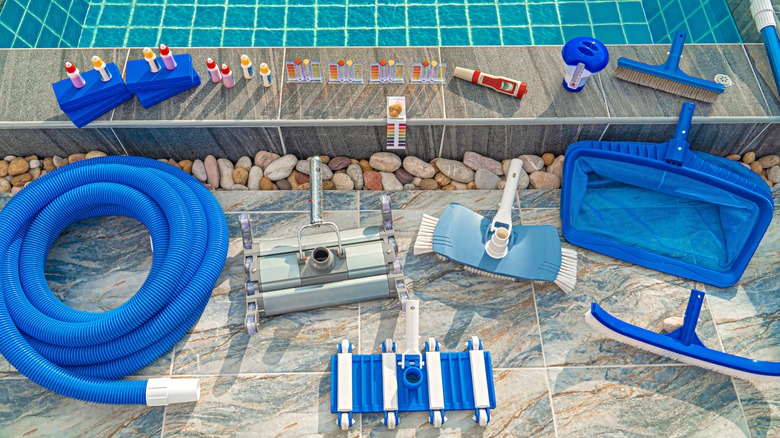Mistakes Everyone Makes When Opening Up Their Pool For The Summer
When homeowners slowly thaw out after a long winter season, the thrill of pool weather gets the blood pumping, and many people all around the United States are excited for great things to come. When spring turns to summer, pool owners have the unique luxury of basking in the sun, bathing in an elegant water feature, and perhaps even launching many fantastic rounds of hybrid sports games with the children, purpose-built for the shallow end of a residential swimming pool. Live About estimates that there are around 10.4 million residential swimming pools in the United States, making this a highly popular feature in American backyards.
Caring for your pool is a crucial task for any homeowner that enjoys this addition. Still, many people don't understand pool the science behind water preparation and maintenance. As a result, they are ill-equipped to effortlessly transition from minimal or non-existent winter use to the constant sessions that often dominate the summer in one of these more than 10 million American homes. Aqua Pools reports that among some of the key tasks involved in preparing for the warmer months, homeowners must focus on pool chemistry and routine sweeping to create the vortex of water required to ensure natural health and clarity. Of course, when the pool is seeing heavy use, your body does much of the work to get the water mobile and clarified, but ahead of this activity, there are some tasks that you must perform.
Minimizing the importance of well-rounded algae clean up
Many homeowners think that vacuuming and chlorine use is enough to maintain clarity in the water and floor of the pool. But other aspects play a significant role in the overall health and pristine qualities of residential or commercial swimming spaces. Aqua Pools reports that using a brush to sweep away buildup on the pool's walls and the floor is equally important as vacuuming debris and grime. In fact, sweeping serves a specific function that vacuuming can't achieve on its own.
Unlike using a vacuum, part of the sweeping task is agitation. Stirring up the environment keeps the water in the pool in constant movement, making it significantly harder for algae to gain a foothold in the aquatic space. This essential task is largely done by the filter and pool pump that runs throughout the summer months (when pool usage is naturally at its highest in residential areas across the United States). However, relying on the pump alone to circulate and filter the water in your pool won't get the job done completely. Sediment and debris can still settle in deep pockets throughout the pool, and when water stops flowing, bacteria and algae can take hold in the environment, In The Swim explains.
Forgetting the chemical and physical flow of balanced pool water
The chemistry of your pool is incredibly important, both in consideration of algae growth (and maintenance) and for promoting overall health and wellness among those who will use the pool throughout the summer months. In addition, a poorly maintained pool can come to represent a sanitary issue if the complex water chemistry isn't kept within a reasonable balance, CBS News notes.
This means using chlorine, routinely measuring pH and alkaline levels, and ensuring proper calcium hardness additions, as per Aqua Pools. Keeping these chemicals in balance will ensure a crystal clear pool that doesn't foster health risks in the form of bacterial growth, algae, and other contaminants that can create eye, skin, or ear issues among typical users. But, of course, a lacking maintenance routine can allow for more serious infection potential as well.
Aqua Pools suggests using typical pool shock chemicals during the evening to create the most effective result. Ensuring that the chemical solution is dissolved into a bucket of water before adding it to the pool is a must. Furthermore, direct addition or the use of chemicals during the daytime can reduce the effectiveness of these tools designed to help create a beautiful and healthy pool environment. A residential pool can be complicated for some because it requires continuous care and an inquisitive understanding of what can cause an imbalance in the water's equilibrium. But the benefits are well worth the effort.


